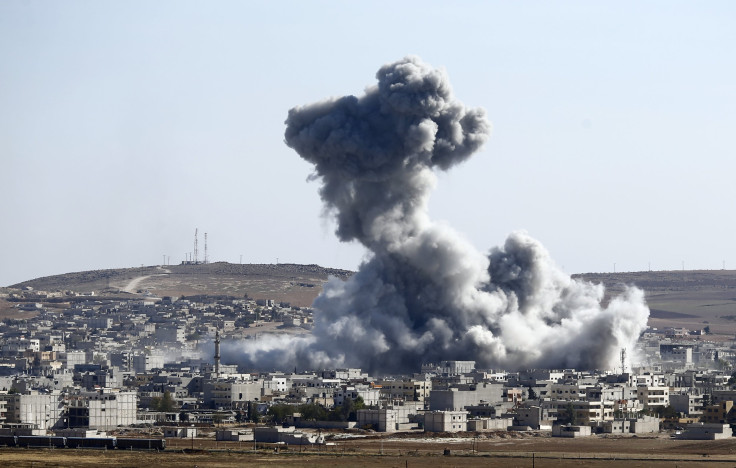ISIS Battle In Kobani: US Collaborates With Kurdish Fighters To Save Border Town

The Obama administration has conducted airstrikes, airdropped weapons and coordinated efforts with Kurdish fighters to help the Syrian border town of Kobani fight off ongoing attacks from the so-called Islamic State. The campaign represents a policy shift in the White House's efforts to stop the militant group's momentum, according to the Wall Street Journal.
American officials have been collaborating with Kurdish commanders to plan air and ground operations. On Sunday, American officials dropped 27 loads of weapons and medical supplies to help the Syrian Kurdish fight off the ISIS forces. The Obama administration's airstrikes were previously aimed at killing Islamic State fighters and taking out their supplies. The focus on Kobani suggests the White House hopes stopping the militants at the Syrian-Turkey border will hinder them further. Pentagon spokesman Rear Adm. John Kirby said at a press conference Tuesday: “We have certainly stunted, we have certainly slowed down their momentum in and around Kobani, there’s no question about that.”
The strategy shift may cause issues for the U.S. if other towns and cities start to seek more significant help from the U.S. as a result, according to the Wall Street Journal. Diplomatic sensitivities in Turkey are also complicating the situation, because the Syrian Kurdish have ties to the Turkish terrorist group Kurdistan Workers’ Party.
Iraq's peshmerga, or Kurdish military, wants to provide reinforcements in Kobani, and the best route for them to travel there is through Turkey. The U.S. has asked Turkey to open a land corridor for them, and it agreed, according to the Wall Street Journal. Those forces had not reached Kobani by Tuesday. U.S. and Arab allies launched a campaign of airstrikes, bombings and missile attacks in Syria in September against the militants, also known as ISIS and ISIL.
Secretary of State John Kerry said recently he understands the position the Turkish government is in but still called on Turkey to intervene. "We talked with Turkish authorities — I did, the president did — to make it very, very clear this is not a shift of policy by the United States,” he said, according to USA Today. “It is a crisis moment, an emergency where we clearly do not want to see Kobani become a horrible example of the unwillingness of people to be able to help those who are fighting ISIL."
ISIS has been battling Kurdish fighters in Kobani for more than a month as part of its campaign to consolidate territory across Iraq and Syria.
© Copyright IBTimes 2024. All rights reserved.






















